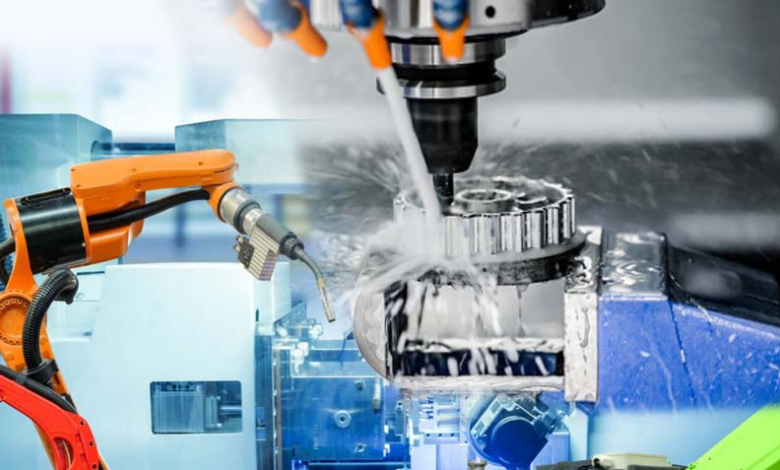Choosing the Right CNC Machining Materials for Industrial Applications

Introduction to CNC Machining
CNC machining has become an essential process in modern manufacturing due to its ability to produce precise, consistent, and complex components. The performance of the final product heavily depends on the choice of materials. Selecting appropriate cnc machining materials ensures strength, durability, and efficiency, while also reducing production costs and improving the overall quality of manufactured parts.
Main Categories of CNC Machining Materials
CNC machining materials are generally classified into three primary categories: metals, plastics, and composites. Each category has unique characteristics and advantages for different applications.
Metal Materials
Metals are widely used because of their strength, durability, and heat resistance. Common metals in CNC machining include:
- Aluminum: Lightweight, corrosion-resistant, and easy to machine. Aluminum is often used in aerospace, automotive, and electronic industries.
- Stainless Steel: Provides excellent corrosion resistance and strength. It is suitable for medical instruments, food processing equipment, and structural components.
- Brass: Known for its machinability and corrosion resistance. Brass is used in fittings, decorative items, and electrical applications.
- Titanium: Combines high strength with low weight. Titanium is ideal for aerospace parts, medical implants, and high-performance automotive components.
Plastic Materials
Plastics are chosen for applications that require reduced weight, chemical resistance, or electrical insulation. Common plastics used in CNC machining include:
- Acrylic: Transparent, easy to machine, suitable for displays, signage, and protective covers.
- Nylon: Strong and wear-resistant, ideal for gears, bushings, and functional mechanical components.
- Polycarbonate: Provides impact resistance and is commonly used in electronics, safety equipment, and lenses.
- Acetal (Delrin): Offers low friction and dimensional stability, suitable for precision components.
Composite Materials
Composite cnc machining materials combine two or more substances to enhance performance, such as higher strength or lighter weight. Carbon fiber reinforced plastics and fiberglass are common examples. These materials are widely used in aerospace, automotive, and sports equipment due to their excellent strength-to-weight ratio.
Factors to Consider When Selecting Materials
Choosing the right cnc machining materials requires a careful evaluation of multiple factors to ensure optimal performance and efficiency.
Mechanical Properties
Strength, hardness, flexibility, and toughness are essential for components to withstand operational stress. Metals like titanium and stainless steel provide superior strength, while plastics such as nylon offer flexibility and impact resistance.
Machinability
Machinability affects how easily a material can be cut or shaped. Materials like aluminum and brass are highly machinable, reducing tool wear and machining time. Harder metals require specialized cutting tools and slower machining speeds.
Thermal and Chemical Resistance
Components exposed to high temperatures or harsh chemicals need materials that maintain their integrity. Stainless steel and polycarbonate are preferred for their thermal and chemical stability.
Cost and Availability
Budget and material availability are significant considerations. While high-performance metals like titanium offer excellent properties, their cost may not be feasible for all projects. Manufacturers must balance cost with performance requirements.
See also: Why Transaction Monitoring Is Critical for Fintech and Banks
Advantages of Using High-Quality Materials
Using the right cnc machining materials offers several benefits:
- Precision: Stable material properties allow for tighter tolerances and consistent results.
- Durability: Strong and wear-resistant materials extend component lifespan.
- Design Flexibility: Suitable materials allow complex geometries and intricate designs.
- Cost Efficiency: Reduced machining time and tool wear translate into lower production costs.
Applications of CNC Machining Materials
CNC machining materials are used across multiple industries, each with unique requirements.
Aerospace Industry
Lightweight metals like aluminum and titanium are used for aircraft structures, engine components, and landing gear. High strength-to-weight ratios are critical to ensure performance and fuel efficiency.
Automotive Industry
Metals and plastics are used in engines, transmissions, and interior components. High-strength alloys are preferred to withstand mechanical stress, temperature variations, and environmental exposure.
Medical Industry
Biocompatible metals such as titanium and stainless steel are used in implants, surgical instruments, and prosthetic devices. Plastics like polycarbonate and acetal offer durability and chemical resistance for medical devices.
Electronics Industry
Lightweight metals and plastics are suitable for housings, connectors, and heat sinks. Thermal conductivity, electrical insulation, and durability are essential properties in electronic applications.
Emerging Trends in CNC Machining Materials
Advances in material science are driving innovation in CNC machining:
- Advanced Alloys: New alloys with improved strength, corrosion resistance, and machinability.
- Reinforced Composites: Increased use of carbon fiber and fiberglass for lightweight, durable components.
- Sustainable Plastics: Development of eco-friendly plastics to reduce environmental impact.
- Smart Materials: Materials that respond to environmental conditions, enhancing functionality and efficiency.
Conclusion
Selecting the right CNC machining materials is essential for producing high-quality, durable, and cost-effective components. Metals, plastics, and composites each provide unique advantages depending on the application. Understanding material properties, mechanical requirements, thermal and chemical resistance, and cost ensures successful manufacturing outcomes. With ongoing advancements in materials and machining technology, CNC machining continues to provide precision, versatility, and efficiency across various industries.





